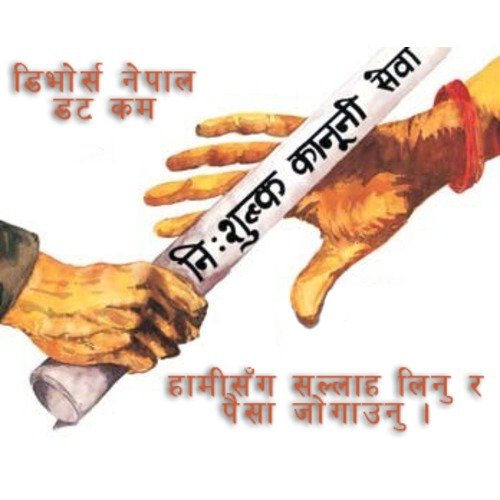Best Father's Rights Lawyers in Nepal
Share your needs with us, get contacted by law firms.
Free. Takes 2 min.
Free Guide to Hiring a Family Lawyer
Or refine your search by selecting a city:
List of the best lawyers in Nepal
About Father's Rights Law in Nepal
Father's Rights in Nepal are intertwined with family law, which governs matters such as custody, child support, and visitation. Traditionally, Nepali family law has been influenced by cultural norms and practices, which often favor maternal custody. However, recent legal reforms strive to ensure that fathers have equitable rights regarding their children. Nepal's laws now emphasize the welfare of the child as the paramount concern, aiming to provide fathers with appropriate legal channels to assert their rights and responsibilities.
Why You May Need a Lawyer
There are several common situations where individuals may require legal assistance regarding Father's Rights in Nepal:
- Child Custody Disputes: Legal representation can be crucial when negotiating custody arrangements, ensuring fair outcomes aligned with the child's best interests.
- Visitation Rights: If your visitation rights are being denied or restricted, a lawyer can help enforce and protect these rights.
- Child Support: Legal advice may be necessary to establish or modify child support agreements, ensuring they are fair and reflective of current circumstances.
- Paternity Issues: Establishing or disputing paternity may require legal guidance to navigate the complexities involved.
- Enforcement of Family Court Orders: Lawyers can assist in enforcing court orders or challenging any violations related to custody or support.
Local Laws Overview
Nepal's family law system is primarily concerned with the welfare and rights of the child. Key aspects relevant to Father's Rights include:
- Child Custody: Nepalese law prioritizes the welfare of the child in custody decisions. While mothers are often favored for custody of younger children, fathers can contest this in court.
- Visitation: Fathers not granted custody are entitled to visitation rights unless there are compelling reasons otherwise.
- Child Support: Fathers are expected to provide financial support for their children, with amounts typically determined by the court based on income and needs.
- Parental Responsibilities: Both parents are encouraged to partake in the child's upbringing, with the law recognizing the importance of the father's role.
- Legal Protections: The law provides mechanisms to protect a father's rights, including the ability to appeal unfair custody or support decisions.
Frequently Asked Questions
1. Can fathers obtain custody of their children in Nepal?
Yes, fathers can obtain custody if the court determines it is in the best interest of the child. While mothers are often favored for younger children, fathers can present evidence to support their case for custody.
2. What rights do fathers have if they are not granted custody?
Fathers not granted custody generally have visitation rights, allowing them to maintain a relationship with their child. These rights can be legally enforced if necessary.
3. How is child support determined in Nepal?
Child support in Nepal is typically determined by the court, taking into account the financial situation of both parents and the needs of the child. Adjustments can be requested if circumstances change.
4. Can paternity be challenged in court?
Yes, paternity can be contested or established in court. DNA testing may be used as evidence in such cases.
5. What can I do if the other parent is interfering with my visitation rights?
If the other parent interferes with visitation rights, you can seek legal assistance to have the court enforce your rights.
6. Are there any special considerations for international parental child abduction cases?
Nepal is not a party to The Hague Convention on the Civil Aspects of International Child Abduction, so international disputes can be complex. Legal advice is essential in such cases.
7. Can court decisions on custody and support be appealed?
Yes, decisions can be appealed in higher courts if there is a belief that the decision was unjust or not in the child’s best interest.
8. What role do cultural norms play in custody decisions?
Cultural norms can influence custody decisions, particularly in communal and rural areas. However, legal standards based on the welfare of the child are increasingly emphasized.
9. Is it possible to secure joint custody in Nepal?
Yes, joint custody arrangements can be made, allowing both parents to participate in the child’s upbringing, depending on the situation and the child's interests.
10. How can an unmarried father secure his rights?
Unmarried fathers can establish their rights through legal processes such as establishing paternity, after which they can seek custody or visitation arrangements.
Additional Resources
For further assistance, consider reaching out to the following resources:
- Family Court: They handle most family law issues including custody and support.
- The Ministry of Women, Children, and Senior Citizens: Provides information and support related to family and child welfare.
- Legal Aid Centers: Offer free or low-cost legal services to those in need.
- Non-Governmental Organizations (NGOs): Some NGOs specialize in family law and can provide advice and support for fathers.
Next Steps
If you require legal assistance regarding Father's Rights, consider the following steps:
- Consult a Lawyer: Seek a lawyer specializing in family law to understand your rights and options.
- Gather Documentation: Collect any relevant documents, such as birth certificates, evidence of paternity, and financial records, to support your case.
- File Necessary Legal Documents: If pursuing a legal case, ensure all forms and petitions are correctly filed in a timely manner.
- Attend Court Hearings: Be present and prepared for all court proceedings.
- Seek Mediation: If suitable, consider mediation to resolve disputes amicably, which can sometimes be quicker and less adversarial than court cases.
Understanding and asserting your rights can help ensure that decisions made are in the best interest of your child and yourself.
Lawzana helps you find the best lawyers and law firms in Nepal through a curated and pre-screened list of qualified legal professionals. Our platform offers rankings and detailed profiles of attorneys and law firms, allowing you to compare based on practice areas, including Father's Rights, experience, and client feedback.
Each profile includes a description of the firm's areas of practice, client reviews, team members and partners, year of establishment, spoken languages, office locations, contact information, social media presence, and any published articles or resources. Most firms on our platform speak English and are experienced in both local and international legal matters.
Get a quote from top-rated law firms in Nepal — quickly, securely, and without unnecessary hassle.
Disclaimer:
The information provided on this page is for general informational purposes only and does not constitute legal advice. While we strive to ensure the accuracy and relevance of the content, legal information may change over time, and interpretations of the law can vary. You should always consult with a qualified legal professional for advice specific to your situation.
We disclaim all liability for actions taken or not taken based on the content of this page. If you believe any information is incorrect or outdated, please contact us, and we will review and update it where appropriate.
Browse father's rights law firms by city in Nepal
Refine your search by selecting a city.











